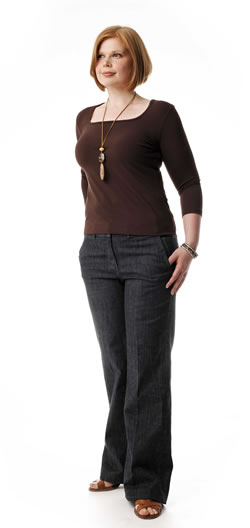Shauna Reid is most recently the author of The Amazing Adventures of Dietgirl.

Listen: Play in new window | Download (Running Time: 39:27 — 36.1MB)
Condition of Mr. Segundo: Still stinging from his measly memoir efforts.
Author: Shauna Reid
Subjects Discussed: Whether the pursuit of truth is more natural through an anonymous journal, writing as “burdening people,” compartmentalizing online identities, self-esteem, contending with the permanent nature of personal stories contained within a book, how the weight loss journey never ends, remaining fallible with the success story label, connective possibilities that exceed expectations, negotiating the Weight Watchers points system, applying group rules to an individual struggle, differences between the American and the UK versions of the book, being branded “Dietgirl,” the vampire method of exercise, amazing fitness instructors, battling against body image, “perfect” people, societal guides for individual struggles, using spreadsheets to keep track of health statistics, substituting one obsession with another, reprogramming a life, the relationship between physical distance from home and moving ahead with one’s life, placing fabricated news stories within the book, being the largest size in the shop at 23, the false connections between happiness and weight, how not talking about problems put strains on friendships, finding an auctorial voice, adjustments to early journal entries, chronicling friends and marriage, Vegemite parties, immigration, marriage, and entrapment, deportation, not living life because of weight issues, “wasting” one’s twenties, and balancing anarchy and being grounded.
EXCERPT FROM SHOW:
Reid: You don’t want to burden people with this depressing stuff. So the blog is just my little haven to finally be honest with myself about how I felt.
Correspondent: But “burdening” people. This is an interesting word that you use. I mean, do you feel that all of your writing in general involves “burdening” people? Certainly, I’ve read your stuff for quite a long time and I have never felt any sense of burden. And I’m wondering how this interior sense of burdening people — do you still feel this way?
Reid: No, I don’t feel that way anymore. I think it just goes to show just how crap my self-esteem was back when I started it. Because What’s New, Pussycat? was my original blog. It was where I kind of separated my physical self from everything that was happening in my head. It was where I could be funny. And it didn’t matter what I weighed. I felt so free to be my true self there. Whereas I felt the need to keep outside to do something about my weight. I didn’t feel comfortable letting that audience know that this was the real me. This was this problem I was dealing with. So I just had this ridiculous two separate online lives. It was very hard keeping them up, to be honest.
Correspondent: Yeah, you had to compartmentalize these identities.
Reid: Yeah, I was totally compartmentalizing my life. Because my offline friends and family didn’t know anything about this diet blog. The diet blog didn’t know about the non-diet blog. And vice versa. So it was just keeping all these ridiculous secrets. But that’s just the way I felt at the time. Even though it seems quite strange to me now that I felt that way.
Correspondent: Interesting. I want to actually talk about this notion of self-esteem. I mean, you were fighting, I think, esteem issues on multiple fronts. You had the weight loss and the job scenario and the unemployment. How much do you feel that, for example, your employment history and your employment scenarios tied into the obstacle of losing weight? You point out that staying busy at work “didn’t give you time to think about Kit-Kats and hamburgers and your general state of fatness.” And I’m curious. When did you detect these particular connections? Or by compartmentalizing them, as you indicate in your last answer, this was a way for you to tie all the various threads together.
Reid: Yeah, I think the more I tried to compartmentalize everything, the more I realized they were all connected. And it was pointless for me to try and separate everything. Because one issue rolled into another. Staying busy at work, like I said. Not thinking about Kit-Kats. And then when things got really stressful at work, I would find myself reaching for the Kit-Kats. So it’s all quite a big mess, I think, in the end. It’s not possible. I think I kept it up for about five years — these two separate identities and everything. But in the end, I think when I finally came out of the closet and stopped trying to hide parts of my personality from other people, that’s when I did tackle all of the problems and come out of the other side.
Correspondent: But coming out of the closet now, you’re also dealing with a scenario in which, well, how much do I keep privately to myself? How many of my identities do I compartmentalize? I mean, for all I know, you could have a secret blog somewhere about some other pressing issue that I don’t know about and nobody else knows about. So what is this relationship between the private and the public? Are you done compartmentalizing things at the present time?
Reid: Oh yeah. I’m totally over that now. I don’t feel the need to do that anymore.
Correspondent: Just a phase.
Reid:: Yeah, a very lengthy phase. But the book’s out now. It’s been out for over a year. The most raw, down, dark moments of my life are captured forever in that book. But I do feel a certain detachment from that time in my life now. Because writing about it is a good way of tying up all those loose ends in my own head.
Listen: Play in new window | Download (Running Time: 39:27 — 36.1MB)
1 Comment